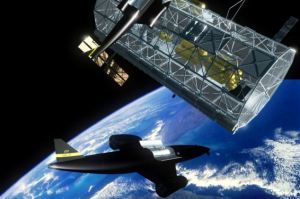Once again, the galaxy of space-advocates is being caught in the trap of clashing between priorities: “the Moon, Mars or the Asteroids”? Each of the three parts hold important arguments on their side. Moon-first supporters consider that our satellite is of easy access, it has many resources that can be profitably used to develop a space economy, and can be integrated in a single infrastructural network with our home planet. Mars-first supporters claim that Mars is a true real world, reaching it would be an unprecedented technological and inspirational achievement and the resources it holds are far larger than those provided by the Moon. Finally, Asteroids-first supporters maintain that many asteroids are far easier to reach than both the Moon and Mars, and can be more easily exploited for economic purposes; moreover, reaching the asteroids would bring about much more information concerning the threat they pose to Earth.
All three positions are meaningful, so there is no absolute “best” in defining our next “grand goal” in space. After all, the debate concerns the very motivations of a space programme: exploration, science and inspiration (Mars), economics (the Moon) or self-defence (the asteroids)? In fact, one could argue whether having a single Space programme in the presence of a plurality of grand objectives is meaningful. Let’s make it clear: both NASA and ESA have been created and tasked with science and exploration as main purposes; they best perform when they focus on their primary mandate. On the other side, the development of a space economic infrastructure, as well as planetary defence, are very meaningful goals di per se. So maybe the moment has come for opening new strands in our space programmes.
To be honest, Earth defence should not be carried by one single nation. It’s a concern of the whole human race and must be carried out by appropriate international institutions, like the United Nations.
Economics and exploration, on the other side, fit well within one nation (or coalition of nations)’ own goals.
For what concerns exploration, traditional space agencies like NASA and ESA are performing quite well. I see no reason to divert their budget, their human capital and energy towards economic-development programmes. Instead, they must keep their focus on the continuous widening of our knowledge base: this is what they do best. In this framework, Mars is surely a legitimate goal for robotic and human exploration.
Economics, on the other side, requires private activity to be heavily involved. However, near-Earth space is a problematic environment for fully privately funded activity: access costs are too high, there is no infrastructure in place, and as a consequence of these two factors, there is little demand in the markets for space-based production and services. However, the potentials of the space economy are huge, and disclosing access to such a wide reservoir of growth and wealth should be a primary task for any government. While private cargos like SpaceX reusable dragon and Reaction Engines Skylon Spaceplane might soon shift access costs dramatically downward, the only infrastructure provider on the market is Bigelow Aerospace- which currently is struggling to ensure its first paying customers. However, many companies have expressed their interest in setting up economic activities in space but they lack funding, infrastructure, and access to carry on individually such a task. The missing infrastructure is particularly important: like in a classical game theory dilemma, no private actor is willing to pay the bill for the common infrastructure, but many private actors would profit of such an infrastructure in place- a typical case of market failure.
Governments thus have an enormous opportunity here. They should set up public-private Economic Space Agencies, collecting both private and public funding, with the explicit goals setting up a space economic infrastructure and fostering private involvement in the growing space economics. Building a dedicated agency co-funded by private investors will have several advantages. First, it will ensure that NASA and ESA keep doing what they are best at- exploring and doing science. Second, it will provide a grant for huge private capitals that a space infrastructure would actually be in place- fostering investment in space-related private companies. Third, focusing on the development of a space infrastructure, it will provide good return-on-investment on the private capital collected: the presence of the public involvement will ensure long term commitment towards the completion of the projects.
It is useful to stress that the goal of this Space Economics Agency is not to provide directly for the production of goods: it is not a form of public undertaking of the economy. Very much like in any advanced state, large infrastructure programmes represent a major impulse for the development of a given area and require public involvement to overcome coordination and free-riding problems typical of this kind of situations. Focusing exclusively on space economics, the Space Economics Agency would provide unmatched support for exploration, because it would move a very wide area of near Earth space, the Moon included, from the domain of scientific exploration to the one of economic exploitation, thus transforming scientific information in the same area into a valuable product that can be provided and traded by private entities and freeing public resources for deep space exploration further away in our Solar system.
*image credit: Reaction Engines Limited, UK
** many Thanks to Suzanna L. for her precious language suggestions











Pingback: Does Europe need a Space Policy Overhaul? | Free Space Economics--Microgravity environment for social thinkers